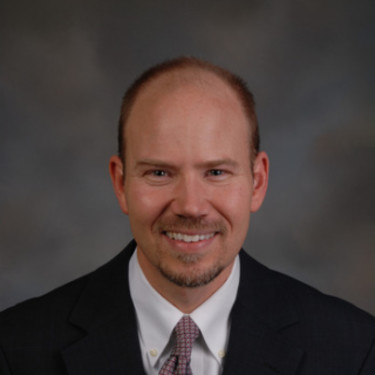Is it possible to be famous in medicine? Politicians, athletes, movie stars, musicians, and some criminals may be famous, but an ophthalmologist? I don’t think so. I once had a resident talk about a “famous” ophthalmologist in town (at least that is what the resident thought). I looked at them and said that there is no such thing. Medicine is a quiet vocation, one founded on deliberate, one-on-one communication and toiling solo in the wilds of the EMR.
Interestingly, we do have some ophthalmologists who are famous or notorious for what they did outside of medicine: Bashar al-Assad, Rand Paul, and Renée Richards, to name a few. And then there are those physicians who have sought out and found fame (but not for their medical skills, per se), like Dr. Pimple Popper, Dr. Phil, and Dr. Oz.
Though the above physicians are outliers, many of us strive for fame in our own way. We may not call it such, but when we do things like overachieving and publishing hundreds if not thousands of papers and/or traveling the world on a non-stop basis to promote our name and institution, we are certainly looking for what I might deem recognition. When we engage in such behaviors, we are lauded, given center stage in publications and conferences, and treated as role models: Younger physicians are told, “Look, this is what you can do with your life, if you just work hard!” And yet, I don’t think this type of overachievement, this hyper-striving for recognition, is good for anyone — not the students who observe it, not patients, and not the physicians themselves.
For students, I worry about the example we set with regards to achievement and fame-seeking. To operate at that level requires diligence that can have pretty severe consequences. I have seen the carnage that is left behind, both personal and professional: broken marriages, dysfunctional relationships with children, and burned out partners and faculty members. I have to wonder: Is the drive to publish and, in my opinion, show off not just borne of desire to advance the field, but of some covert desire to gain approval from external sources? To the physicians in training reading this, I urge you to take a step back and consider whether your urge to go above and beyond in terms of publications and conference presentations is internally or externally motivated. Ask yourself if you are trying to attain someone else’s approval through your overachieving. To be quite truthful, that approval will probably never come if it is not already there. You don’t have to work so hard — it’s OK to just be good at what you do. Remember, everything (even looking like the “ideal physician”) comes with a cost.
Similarly, for physicians, working yourself to the bone in order to achieve recognition can have mental health consequences. The undeniable truth, to paraphrase Charles de Gaulle, is that “the graveyards are full of indispensable [people].” I know this firsthand: I am not immune to the drive to overachieve — nor to its negative impacts. I am fully cognizant that every line on my CV represents at least one day away from my family. In my opinion, surviving and thriving as a doctor means being internally motivated, not externally motivated. The vast majority of the leaders that I have witnessed over the years are externally motivated, and are constantly trying to hold themselves to that ideal … an endless, and harmful, pursuit.
And when it comes to patient care, if we are focused too much on being recognized for our achievements, we won’t be able to connect with our patients on the same level. Paradoxically, this actually makes us worse doctors in the long run. I’ve come to learn that the satisfaction we serendipitously receive from practicing medicine for medicine’s sake and connecting with our patients is much more fulfilling than any recognition we might get from our peers — which is quite fleeting.
All that said, I think that it is normal to want to be respected by our colleagues. There is a healthy balance that is in reach, though — even if the folks I mentioned at the top would disagree. Because as I said, true fame in medicine is nonexistent. Although the social media stars have created a significant following, the value of their influence isn’t in disseminating useful medical information, but more for the shock value of an interesting medical subject, or more commonly an unfortunate patient. I sometimes ruminate over the fact that one of these “pop docs” took a medical school position from someone else. I think there was a lost opportunity there — medical school positions are precious. We are so fortunate to practice in a profession that is community-based and patient-centric. The interactions I have with my colleagues when we support each other are so much more rewarding than when we compete with each other. And, nothing compares to the relationships we develop with our patients.
For those of us down here on Earth, we have a duty to our patients, not the public. Reader, remember: The only person you need to impress is yourself. Don’t compare yourself to others, as the circumstances of your life are specifically different from others’. The goal is just to make ourselves better than what we were the year before. Our patients will thank us for the effort. But, striving for fame in medicine? That’s a narcissist’s errand.
How do you strike a balance between striving for recognition and keeping yourself grounded? Share in the comments.
Dr. Richard Allen is an oculoplastic surgeon in Houston, TX. He practiced at St. Erik’s Eye Hospital in Stockholm, Sweden from September to December of 2024 as a visiting professor. He is an avid cyclist and enjoys spending time with his wife outdoors. Dr. Allen is a 2024–2025 Doximity Op-Med Fellow.
Illustration by Diana Connolly







